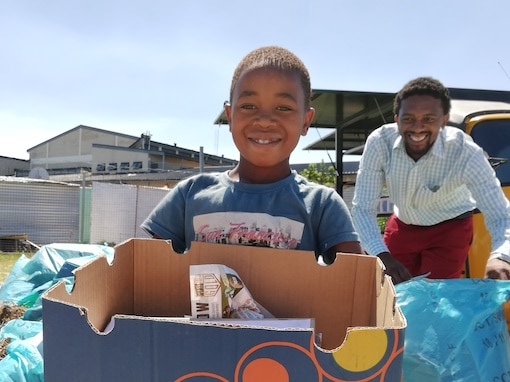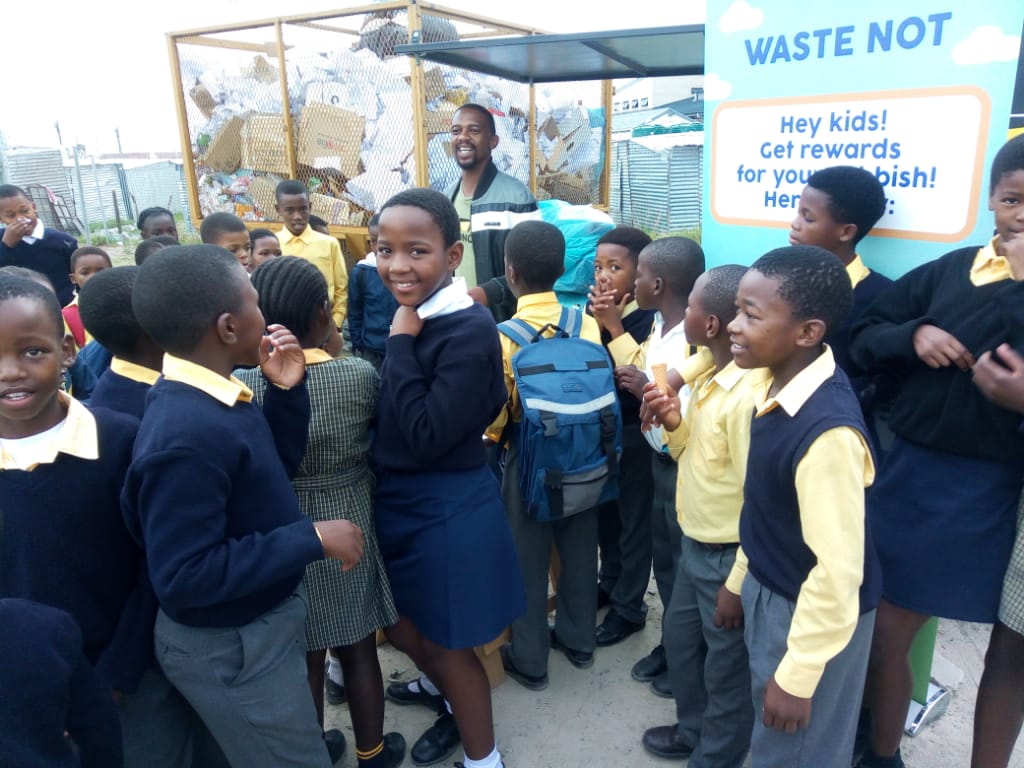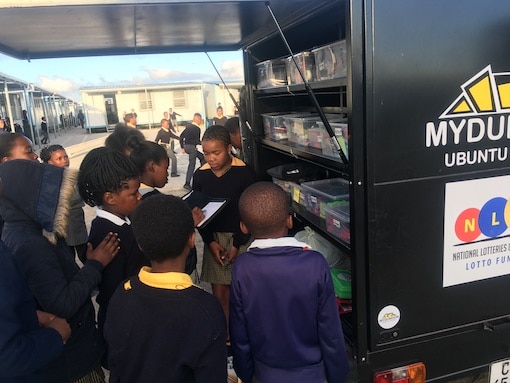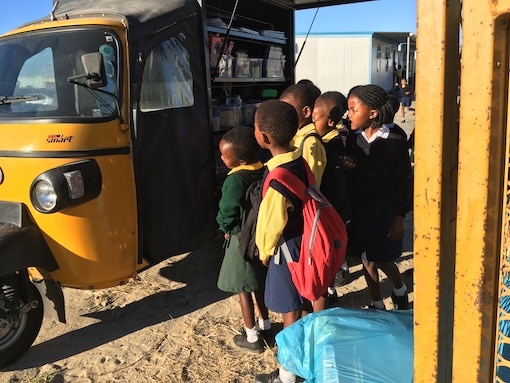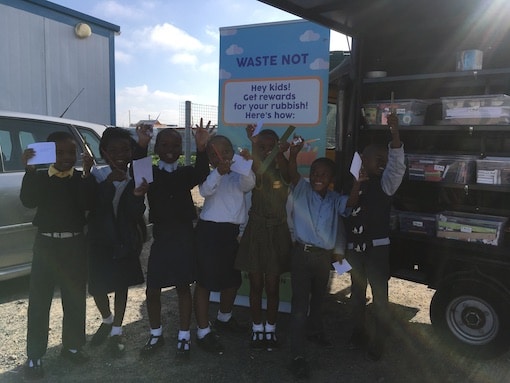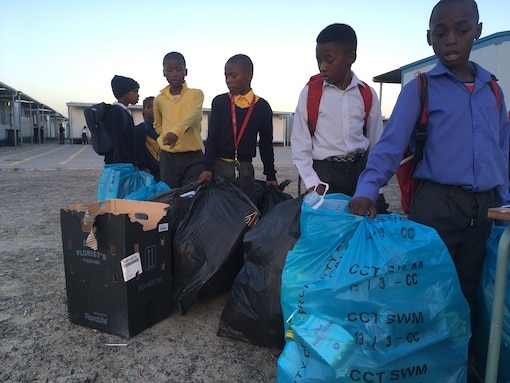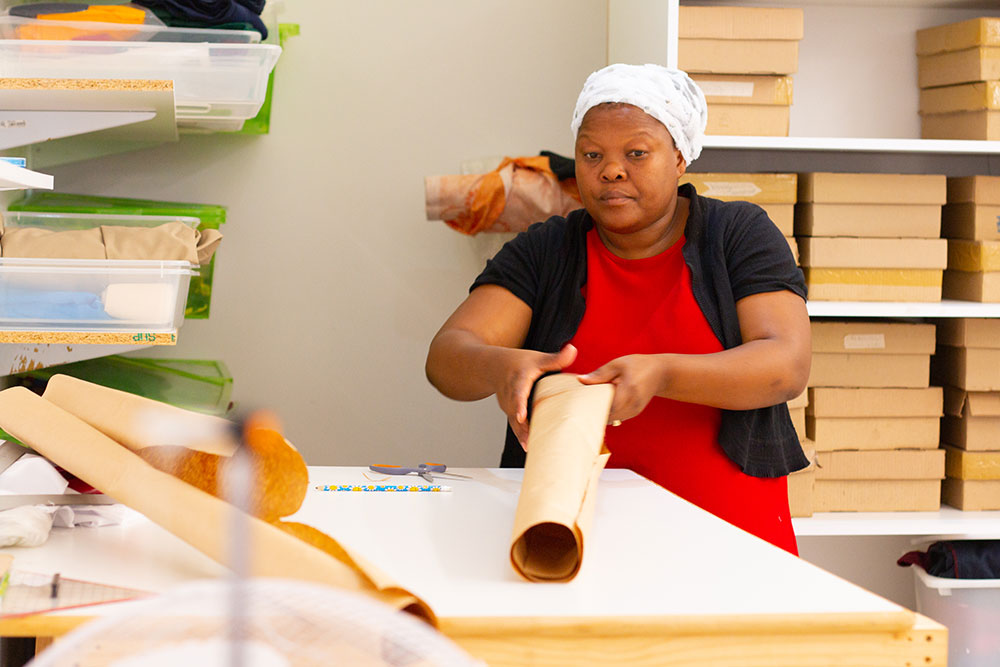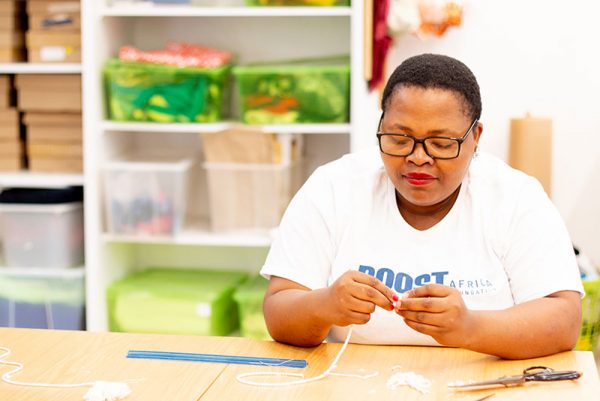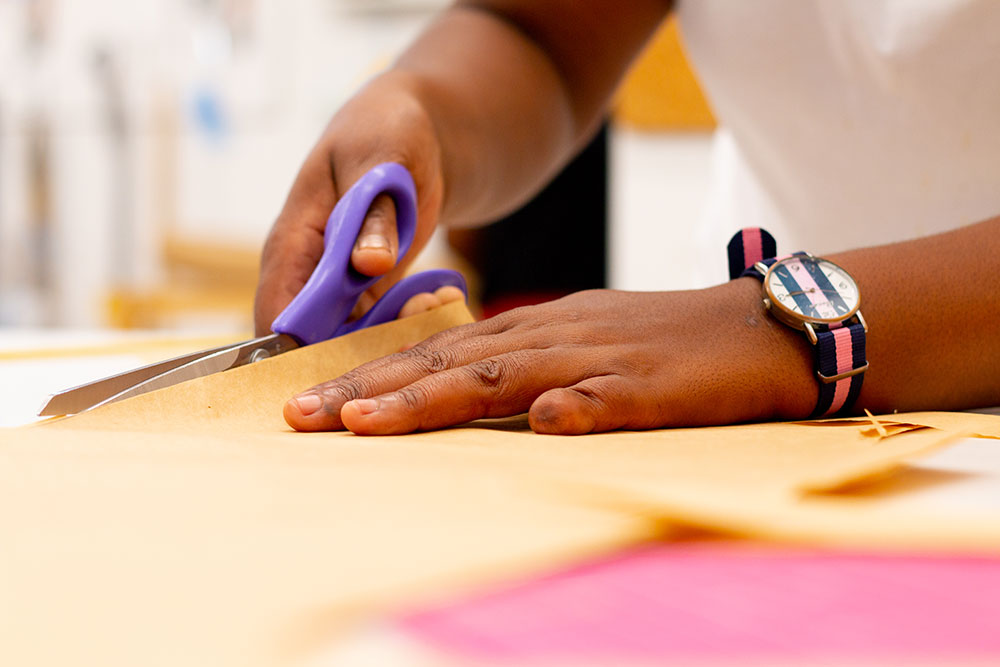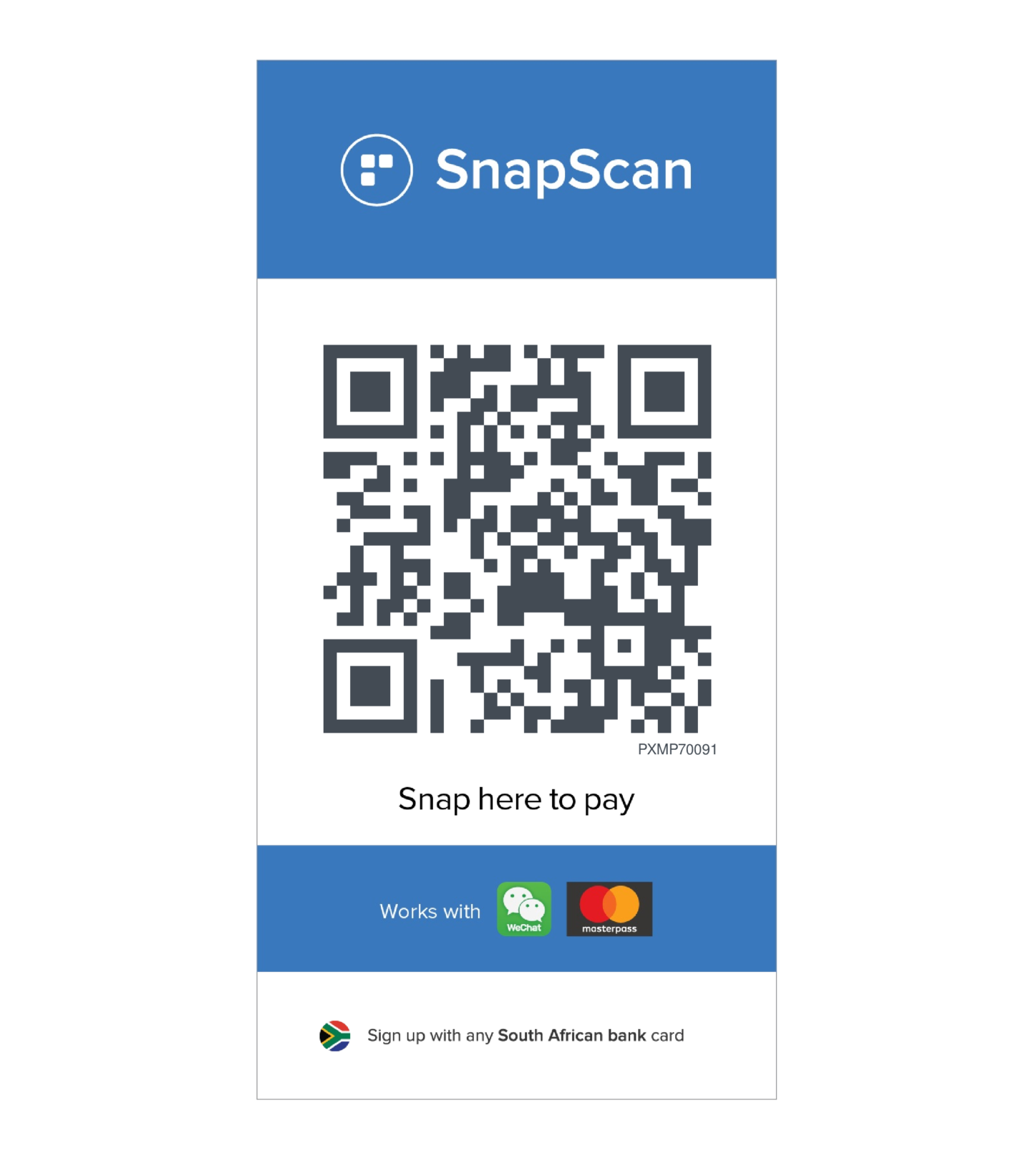Reducing the waste lying around Dunoon
Over the last few years Dunoon has made the headlines every few months as the media reports on the sewage running down the streets and the ongoing struggle with waste collection. One of our Directors has even sat in meetings with the local government to brainstorm solutions. It became clear that to solve this problem sustainably would require multiple interventions one of which is to decrease the amount of waste lying on the streets. The Waste Not programme activates the community by giving incentives for locals to collect the recyclable waste lying around the community.
Give access to educational resources
The last census showed that the monthly income for 79% of Dunoon households is less than R3300 a month and 33% of households in Dunoon bring in less than R400 a month. The most basic school supplies will cost a parent between R750 and R1500. We have seen first hand how parents struggle to provide their children with basic school supplies and how disempowering this can be. The Waste Not programme empowers children and parents to collect recycling that they can exchange for educational supplies.
TONS OF RECYCLING COLLECTED
PEOPLE PARTICIPATING
RAND VALUE OF SUPPLIES EXCHANGED
We are producing our own products to sell and take orders from third parties to make bags, jackets, aprons, tracksuits etc. This makes it possible for our graduates to gain experience and goes towards funding the work we do.
In 2014 a couple of women from Dunoon met at Boost Africa Foundation to learn knitting. In time, the first sewing course was born with two old Bernina sewing machines donated from Switzerland.
There was so much interest with a waiting list of over 100 individuals from the Dunoon community who wanted to learn sewing. We managed to find more machines and started offering an eight-week basic sewing course equipping learners with the skills to design a basic pattern, cut and operate a sewing machine.
Since 2015, 300 individuals have completed our course and we are currently employing five sewing centre graduates who are teaching and making products to sell.
STARTER COURSE
This 2 week course provides individuals with an introduction to sewing. After completion they can decide if they want to embark on the journey of becoming a professional seamstress.
FEES: R 200 deposit to cover all the student’s material costs for the duration of the course.
BEGINNERS COURSE
This is a 8 week course where students learn how to: handle the sewing machines, work with patterns, cut accurately, sew simple items (needle pillow, apron, bag, shoe bag), create articles of clothing for personal use according to a chosen pattern and work with zips, buttonholes, etc.
FEES: R 200 deposit to cover all the student’s material costs for the duration of the course.
STUDENTS GRADUATING
COURSES RUNNING
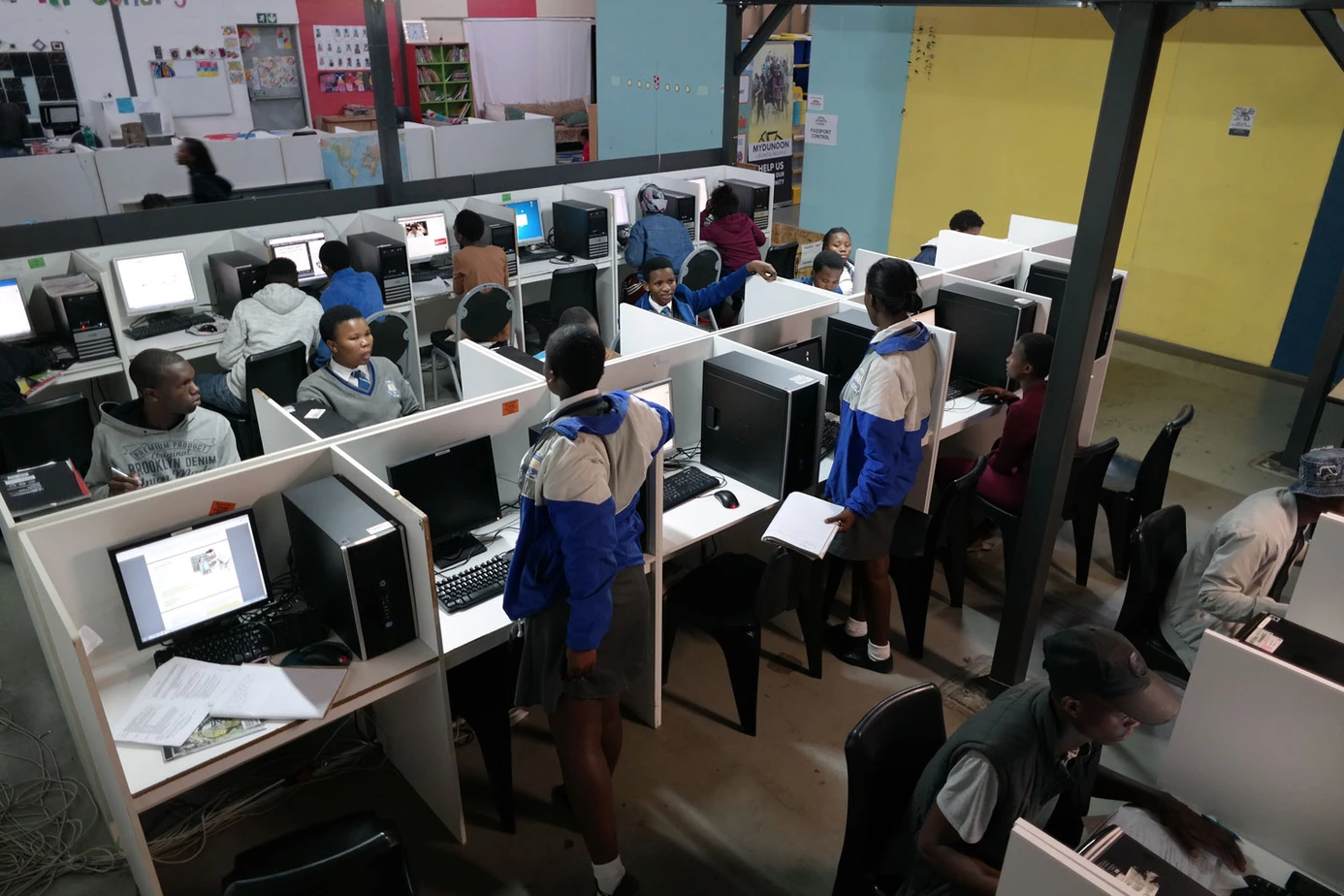
A good PC, Internet access and online educational content can open up a whole new world of possibilities for any child. High data costs in the country rob the majority of South Africans of their right to access and ability to partake in the digital economy. With outcomes-based education putting more emphasis on marks for projects throughout the year instead of marks for exams, those with the means to put together five-star projects will sail through school, qualify for university admission and leave their poorer peers behind.
The Boost learning centre with a well equipped computer lab and space to study, is open to all learners from Grade 3 to Tertiary students. Internet access is freely available to learners to do school project research, study for exams and apply to universities/colleges. Assistance is provided to learners when needed. Job seekers who have completed our Job Readiness course are also allowed to use the computer lab in the morning for online job applications, emails and printing.
COVID 2020 EMERGENCY RESPONSE
TOTAL PARCELS DISTRIBUTED
Vouchers given
INDIVIDUALS FED
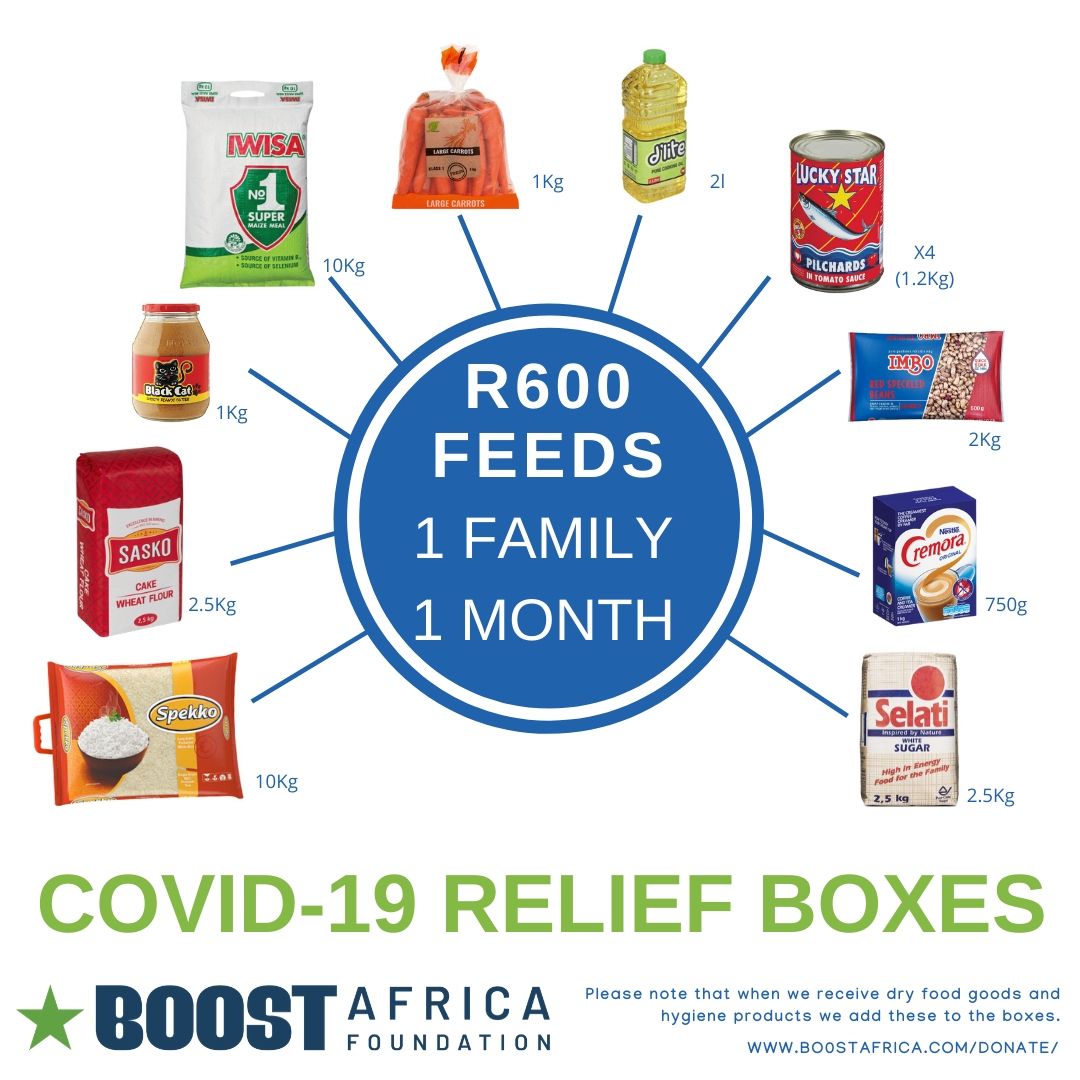
what we did
The Covid-19 pandemic had a devastating impact on families in low income communities. The first lockdown was a surprise to all of us and while the larger specialised food non-profits and government reorientated, we stepped in. Our strong network allowed us to respond quickly and fill in the gap. We designed a fast and affordable emergency food system to feed families in vulnerable communities.
Our initial goal was to feed 1000 families once off and another 120 families from our AftaCool clubs for 3 months. This was exceeded, by far.
As restrictions eased we moved to supporting soup kitchens within the community. These soup kitchens are now linked to larger food organisations. Although we do occasionally channel resources when needed.
The year was a blur and it was hard to keep record of everything we did but by the end of 2020 we estimate that we fed over 14 000 people with our food parcels and vouchers , up to 1000 people a day through the soup kitchens and gave out 30 000 sandwiches . Apart from the food we also assisted by distributing 82 baby packs, 208 packs of pet food, 1600 masks and 1200 educational resources.
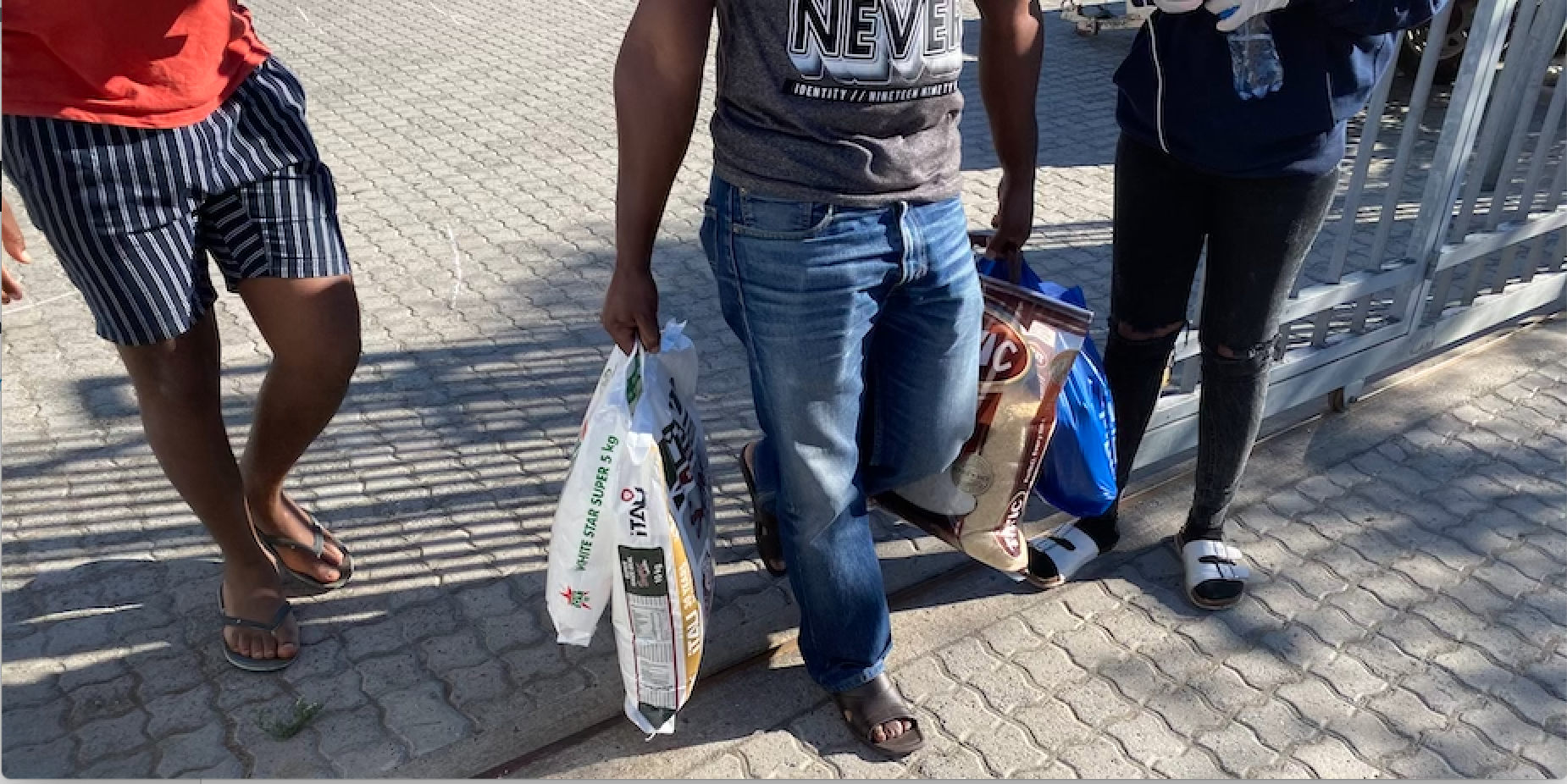

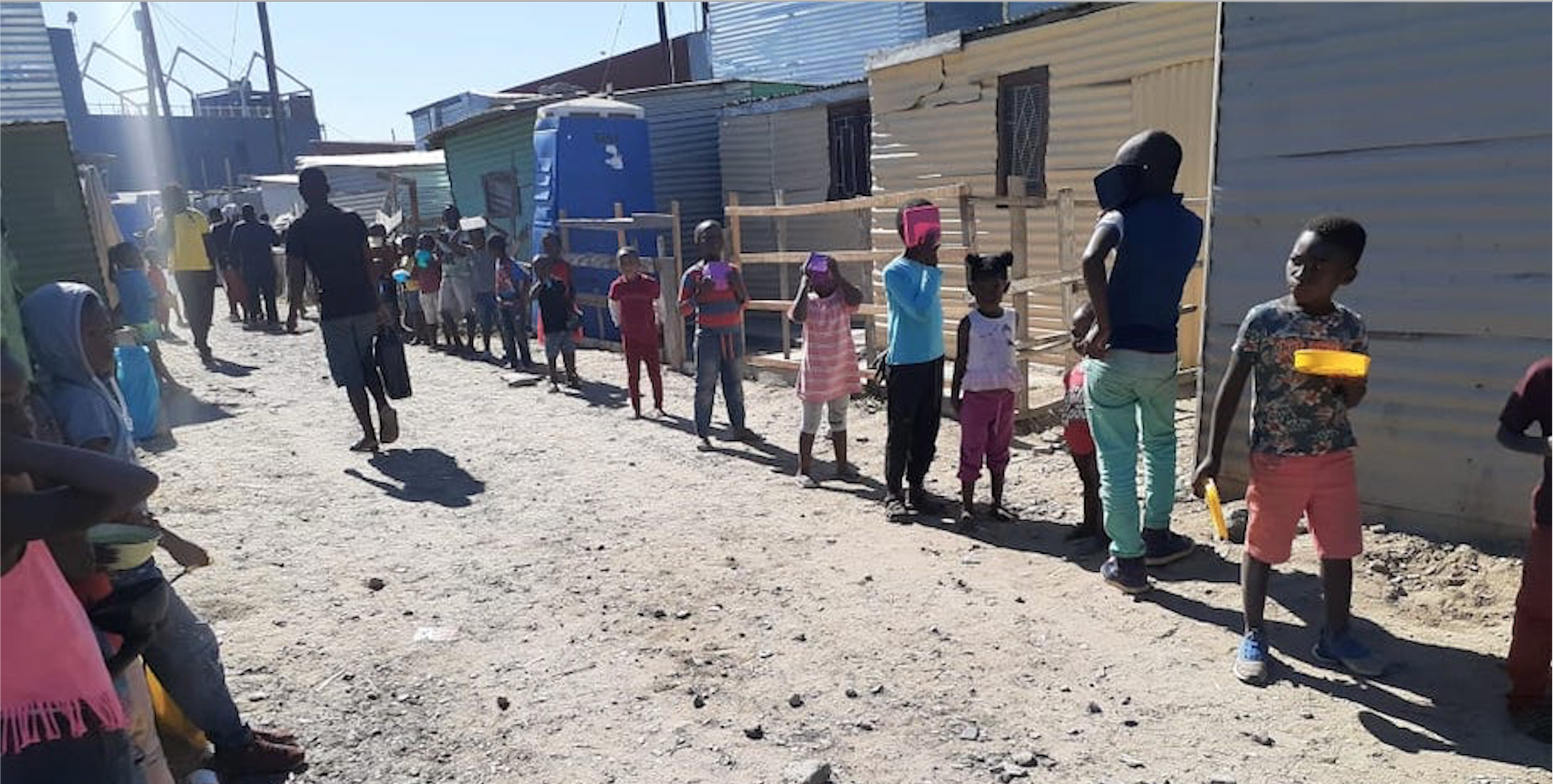
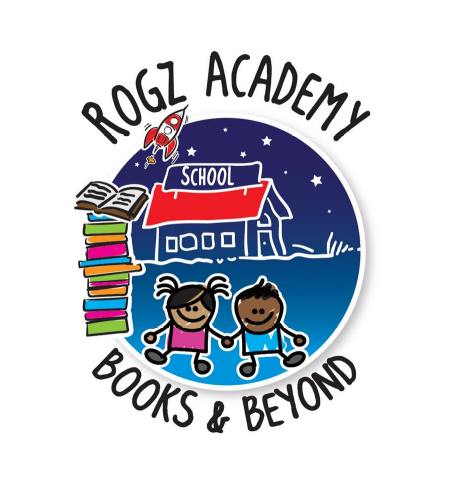
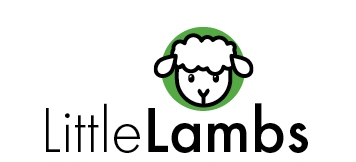


We are committed to relationship building and making our programmes sustainable, relevant and impactful in the specific community we work in. The work we do under the myDunoon banner takes a step back and looks critically at the larger context that the beneficiaries of our projects live in. This allows us to identify the biggest challenges in the community and when capacity and resources line up, allows us to co-ordinate the collaborative efforts needed to address these challenges.
This initiative therefore covers the very necessary although somewhat background bridging work that we do as an organisation.
This year we assisted >77 children who were not attending school to be placed in a school.
Poverty Stoplight is an approach that helps people progress out of poverty by empowering them to understand and map their own choices. It encourages households to participate and own their journeys out of poverty, and provides a clear line of sight of how to get there; at the same time allowing organisations delivering support to measure progress against their programme objectives.
Our next goal is to give our staff and the families of children in our AftaCool programme access to the poverty stoplight tool. Each family will engage in a process of self-discovery where they will be able to identify indicators of their own poverty and work on strategies to address these.
To read more about the poverty stoplight tool see: www.povertystoploght.co.za
The film club is a group of aspiring young film makers practising their craft whilst creating relevant and inspiring local content.

